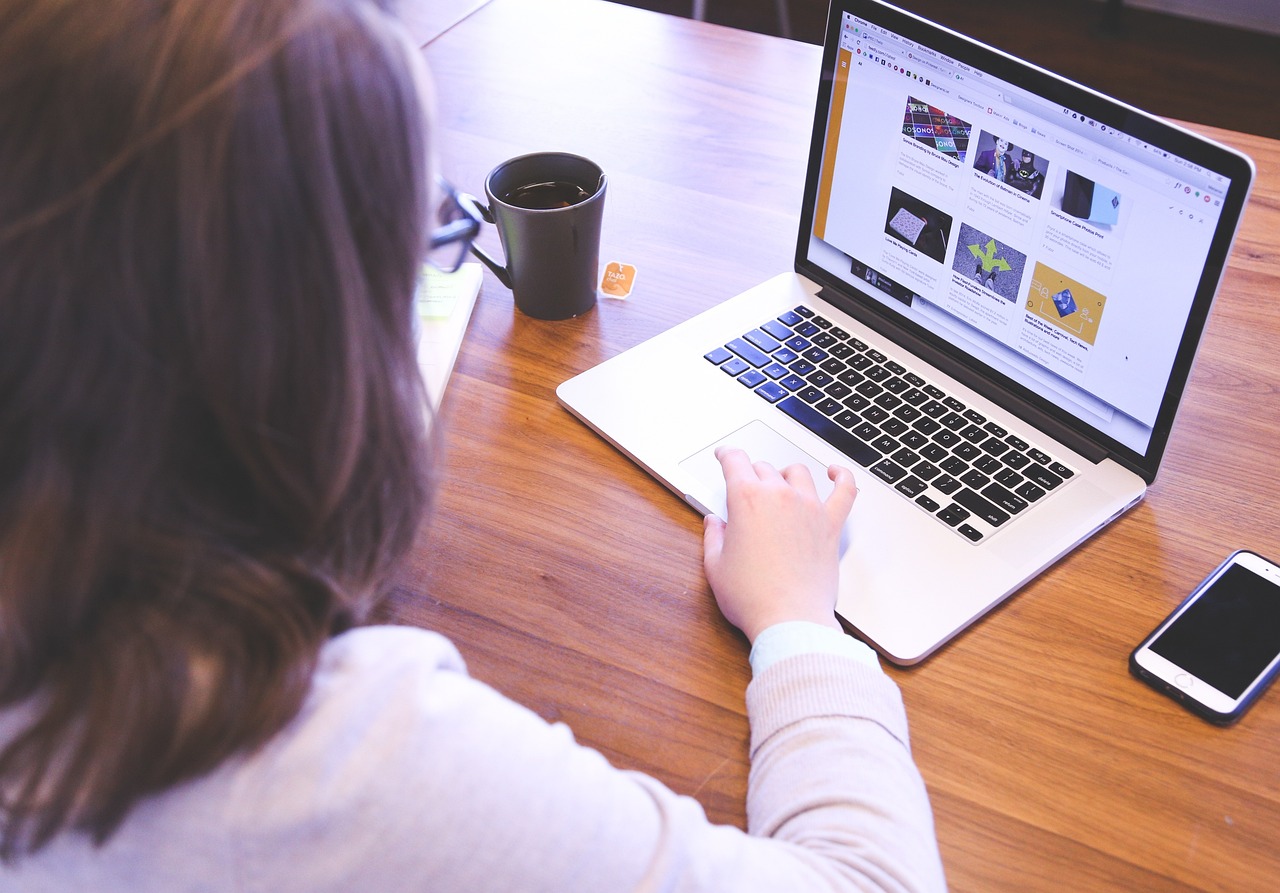In today’s fast-paced, technology-driven world, we’re often surrounded by an overwhelming amount of digital information and notifications. While our digital lives offer convenience and connection, they can also clutter our mental space, lowering productivity and impacting our mental well-being. By decluttering our digital life, we not only improve our focus and efficiency but also give ourselves the mental clarity needed to focus on the work that matters. In this post, I’ll discuss some tips and tricks to streamline our digital environments and how doing so can positively affect both our productivity and mental health.
We live in an age where the majority of our daily tasks and communications happen digitally. From overflowing email inboxes to endless social media updates and digital files that pile causing virtual clutter, it’s easy to feel overwhelmed. However, by taking a step back and organizing our digital spaces, we can reclaim control over our storage space, saving time while improving our mental health. By the end of this post, we’ll be equipped with some key strategies to help us declutter our digital worlds and create a more intentional, focused approach to both work and life. It’s time to reclaim our time and peace of mind—starting with the digital spaces we occupy daily.
Decluttering Your Digital Life Matters
It’s easy to overlook the impact of digital clutter, but the reality is that it can have far-reaching effects on both our productivity and mental health. Just as a disorganized physical space can disrupt our peace of mind, a chaotic digital environment can do the same. Research shows that digital clutter leads to cognitive overload, meaning we’re constantly shifting our focus between tasks and processing unnecessary information. This constant task-switching fragments our attention, which can cause stress, lower efficiency, and prevent us from fully engaging in the moment.
A Clearer Mindset
When our digital environment is cluttered, maintaining focus becomes a major challenge. It’s hard to prioritize when distractions are constantly vying for our attention. If you’ve ever found yourself desperately searching for a file or document you know you saved somewhere on your computer, you probably understand the frustration. After trying every search trick in the book and scrolling through endless folders, you finally find the document, only to realize the file name is completely different from what you thought it would be. This wasted time and stress is not only mentally draining but it also makes it harder to be productive.
Decluttering our digital spaces creates a sense of order that helps clear our mental disorganization as well. With fewer distractions, we can more easily focus on what truly matters and think critically about our tasks. This clarity not only reduces stress but also helps us stay present, which is essential for making consistent progress on our goals.
A Boost in Productivity
As I mentioned earlier, clutter—whether physical or digital—tends to sap our cognitive energy. Digital distractions, like a phone full of notifications or a disorganized desktop, demand additional mental resources, making it harder to stay focused on important tasks. For instance, when I search for a document in Windows and don’t find it right away, I can feel my productivity clock ticking away. A quick search can easily turn into a 10-minute ordeal. Over time, these small, seemingly insignificant delays add up and can have a noticeable impact on our overall productivity.
A clutter-free digital workspace, on the other hand, streamlines our processes and allows us to spend less time searching for information. When we take the time to organize our digital environment, we set ourselves up for success by minimizing distractions and optimizing our workflows. The result? We accomplish more in less time and with less stress.

Organize Email Inbox & Notifications
Email is one of the biggest culprits when it comes to digital clutter, and it can quickly become a major source of stress and distraction. With promotional emails, newsletters, and a constant flow of work-related messages, our inboxes can spiral out of control. An unorganized inbox not only wastes time but also makes it harder to find important information. On the flip side, an organized inbox boosts efficiency, making it easy to locate key messages and reducing the mental load. When we take control of our email, it can lead to a more productive, less stressful workday.
Unsubscribe from Unnecessary Newsletters
One of the first steps to reclaiming our inboxes is unsubscribing from emails that no longer serve us. We’ve all been there: a red notification bubble telling us we have 50 unread emails, most of which are just newsletters we never read or promotions we don’t need. At one point, I used to feel the need to clear that notification bubble, like some kind of digital game. But as I streamlined my routines, I realized it was a time-wasting habit. Do we really need daily emails from every online retailer or weekly updates from newsletters we never open? By unsubscribing, we cut out the noise and save time—small actions that lead to big improvements in productivity.
Create Folders and Labels
Next, we can take our organization a step further by creating folders and labels for different types of emails—work, personal, newsletters, etc. This system allows us to categorize incoming messages, so we can quickly prioritize what needs immediate attention. When an email lands in our inbox, we don’t have to sift through pages of messages to find what’s urgent. Plus, if the search feature fails to locate an email, having a clear folder structure makes it that much easier to track it down manually. Organizing your inbox doesn’t have to be complicated—simple labels can make a world of difference.
Turn Off Non-Essential Notifications
Let’s not forget the role notifications play in digital clutter. They can be a major drain on productivity by constantly interrupting us. When we’re bombarded with alerts for every new email, app update, or social media notification, it’s nearly impossible to stay focused. But when we limit notifications, we create an environment that supports deep work and concentration. By turning off alerts for non-essential apps, we allow ourselves to focus on what truly matters. Instead of being interrupted every time an email arrives or a social post goes live, we can set specific times to check these updates, preserving our focus and reducing the temptation to multitask.

Tidy Up Your Digital Files & Folders
Just as a clutter-free physical workspace promotes productivity and mental well-being, organizing our digital environment can have a similar effect. When our digital space is chaotic, it’s hard to focus or feel motivated. Fortunately, there are straightforward steps we can take to bring order to our files and folders, which will help clear up mental space and boost our productivity.
Declutter Your Desktop
The desktop is often the first place where digital clutter piles up. If your desktop is littered with random icons, screenshots, or files you haven’t sorted, it’s time to declutter. Start by going through these files and deciding what’s truly necessary. Delete what you don’t need, move active files into proper folders, and archive anything you might need later. A clean desktop creates a sense of order, and just like in physical spaces, this mental clarity can improve focus and reduce stress.
Implement a Folder System
Once your desktop is cleaned up, it’s time to tackle the deeper organizational tasks—your files. One of the best ways to do this is by creating a folder system that reflects the way you naturally organize your work. Whether you have categories like “Work,” “Personal,” “Finance,” or “Projects,” it’s important to create a structure that’s intuitive for you. The more logical the system, the easier it will be to find and organize documents when you need them. For a more effective approach, consider using subfolders for deeper categorization. In Getting Things Done, David Allen emphasizes the importance of capturing, clarifying, organizing, and doing. His method can be applied to digital files by ensuring every document has a home and a purpose, allowing you to be more productive and less distracted.
Backup Your Files Regularly
Nothing is more frustrating (and potentially devastating) than losing important files due to system crashes or data corruption. This is where regular backups come into play. After putting in the work to tidy up your digital files, ensure that all your valuable documents are protected. Whether you choose cloud storage or an external hard drive, having a reliable backup system in place is crucial. Not only does it give you peace of mind, but it also prevents you from wasting time searching for lost or unrecoverable files. Backup your files consistently to protect both your hard work and your mental well-being.
Social Media & Online Presence
Social media can be a double-edged sword. While it connects us to the world, it also has the potential to drain our time and energy, often leaving us feeling distracted or anxious. Over the years, my interests and perspectives have shifted, and I’ve found that some accounts I used to follow no longer resonate with me. They didn’t align with my evolving values, and following them was only adding clutter to my mental space. So, I took the time to clean up my social media presence. If you’re feeling the same, here are a few steps to help you streamline your digital life and make your social media feeds work for you—not against you.

Unfollow Accounts That No Longer Serve You
The first step in curating a healthier social media presence is to review the accounts you follow. Ask yourself: Are these accounts uplifting me, helping me grow, or providing value? Or are they creating stress, fueling comparison, or wasting time? Over time, our interests and values naturally evolve, and it’s important to refresh your social media circle accordingly. Unfollowing or muting accounts that no longer align with your mindset and goals can instantly reduce distractions and anxiety, making it easier to focus on what truly matters.
Set Limits on Screen Time
We’ve all fallen into the trap of mindlessly scrolling through social media, but we can regain control by setting clear boundaries. One way to do this is by setting time limits for specific apps or websites that don’t contribute meaningfully to our lives. Many smartphones and apps now offer built-in tools that allow us to track and limit our screen time, so we can be more intentional about how we spend our digital hours. By using these features, we can reclaim our time and boost our productivity.
Be Mindful of Your Digital Consumption
Mindless browsing is easy, but intentional digital consumption is far more beneficial. Rather than endlessly scrolling, take a moment to consider the kind of content you engage with. Are you seeking inspiration, education, or entertainment that aligns with your values and goals? It’s important to filter the digital content you consume so that it serves you. Choose to interact with material that sparks creativity, motivates you, and helps you grow—whether it’s through insightful articles, podcasts, or uplifting social media accounts. We have the power to control what we consume, and the content we engage with can have a significant impact on our mental health and overall well-being.
Clean Up Your Devices & Apps
We often accumulate apps on our phones and computers that we rarely use, creating digital clutter that not only occupies space but can also add to our mental overload. I know I’ve had moments when I came up with a new idea, only to remember there’s an app that could help, but I can’t recall its name or even the icon. And don’t even get me started on when an app’s icon changes unexpectedly! I had a time when my bank app updated its icon, and it took me way longer than it should’ve to find it. It was a simple thing, but it created unnecessary frustration. To solve that, I came up with a system to organize my phone in a way that made it easier to navigate and find what I needed quickly. Here are a few tips.
Delete Unused Apps
Take a moment to go through your devices and delete apps that haven’t been used in months. It’s astonishing how much mental clarity we can gain by removing those random apps that we only scroll through out of habit. Not only does it free up space, but it also reduces distractions. You’ll be amazed at how much easier it is to focus when your devices are leaner.
Organize Your Apps
Once you’ve cleaned out the unnecessary apps, organize your remaining apps by category—work apps, social media, health apps, entertainment, etc. On your phone, use folders to group apps together. A streamlined, intentional layout reduces decision fatigue and helps us quickly find what we need without wasting time scrolling through a sea of icons.
Clear Cache and Data Regularly
Over time, devices accumulate unnecessary files, cached data, and temporary files that can slow things down. Regularly clearing your cache, cookies, and app data can keep your devices running smoothly, reduce lag, and improve overall performance. This simple habit not only declutters your digital space but also ensures faster access to the apps and information you need.
The Clutter-Free Way Forward
Decluttering our digital life is not just about tidying up files or unsubscribing from emails—it’s about creating space for clarity, focus, and peace of mind. By organizing our digital spaces, reducing distractions, and filtering the content we consume, we set ourselves up for greater productivity and mental well-being. The process may seem overwhelming at first, but by taking it step by step, we can slowly regain control of our digital environments and improve our overall quality of life. The key is to start small and be consistent. With every task we complete, we’re investing in our mental clarity and setting ourselves up for success in both our personal and professional lives.
Ready to take the first step toward a more organized, productive, and mentally clear digital life? Start with one of the strategies mentioned in this post—whether it’s cleaning up your inbox or tidying up your phone—and experience the difference it makes. Share your progress with us in the comments or on social media, and don’t forget to check out our other resources for more tips on maximizing productivity and mental health. Let’s declutter together and create a space that supports our best selves!
Discover more from Focused Expansion
Subscribe to get the latest posts sent to your email.




